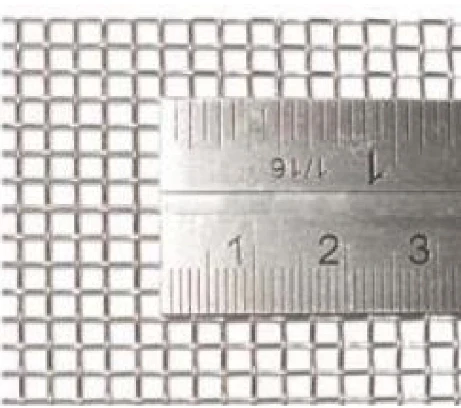Dec . 11, 2024 10:35 Back to list
Reinforcing Mesh Pricing Information Reference 617 for Construction Projects and Materials
Understanding the Costs and Benefits of Reinforcing Mesh A Comprehensive Overview
Reinforcing mesh, also known as welded wire mesh or reinforcement mesh, plays a crucial role in the construction and civil engineering industries. Its primary function is to provide structural support and strength to concrete, helping to prevent cracking and ensure longevity. As construction projects often operate under strict budgetary constraints, understanding the pricing and factors influencing the cost of reinforcing mesh is essential. In this article, we will explore the various elements that contribute to the price of reinforcing mesh, its types, and the importance of selecting the right mesh for specific applications.
What is Reinforcing Mesh?
Reinforcing mesh is composed of a grid of steel wires that are welded together at intersections, forming a uniform pattern. Typically, it comes in various gauges, sizes, and configurations, making it adaptable to different structural requirements. Engineers and builders use reinforcing mesh in foundations, slabs, pavements, and walls, ensuring that the concrete can withstand tensile and shear forces.
Factors Influencing the Price of Reinforcing Mesh
The price of reinforcing mesh can vary significantly based on several factors
1. Material Quality The type of steel used in the production of reinforcing mesh affects its cost. Higher-grade steel typically results in a higher price but provides better performance in terms of strength and durability.
2. Size and Gauge The dimensions of the mesh and the thickness of the wires also influence the price. Larger sheets or thicker wires generally cost more due to the increased material requirements.
3. Manufacturing Process Different manufacturing techniques can affect pricing. For instance, mesh produced through advanced automated processes may have a higher upfront cost but can offer better quality and consistency.
4. Market Demand Prices for reinforcing mesh can fluctuate based on market conditions, including demand from the construction sector, availability of raw materials, and wider economic factors. Prices tend to rise during peak construction seasons and may drop during slower periods.
5. Location Transportation costs can impact pricing, particularly for buyers located far from suppliers. Local availability of reinforcing mesh can lead to cost variations across different regions.
reinforcing mesh ref 617 price

The Importance of Selecting the Right Reinforcing Mesh
Choosing the appropriate type of reinforcing mesh is critical for the success of a construction project. Factors to consider include
- Load-bearing Requirements Different applications require varying strength levels. It is essential to select a mesh that can adequately support the anticipated loads.
- Environmental Conditions Mesh used in coastal areas may need to be treated for corrosion resistance, which can affect the price. Similarly, areas that experience extreme temperatures may require specific types of mesh to withstand thermal expansion and contraction.
- Project Specifications Compliance with local building codes and regulations is crucial. The right reinforcing mesh must meet these standards to ensure legal and structural integrity.
Cost-Benefit Analysis
While the initial investment in high-quality reinforcing mesh may be higher, the long-term benefits often justify the expenditure. Properly reinforced concrete structures experience fewer maintenance issues, reduced repair costs, and increased lifespan. On the other hand, lower-cost mesh may save money upfront but can lead to structural failures, which incur substantial repair and reconstruction expenses.
Additionally, the efficiency of installation can also impact overall project costs. Higher-quality mesh may be easier to work with and require less time and labor for installation, further enhancing its cost-effectiveness.
Conclusion
In summary, the price of reinforcing mesh is influenced by various factors, including material quality, size, manufacturing processes, market demand, and geographical location. Understanding these elements is essential for making informed purchasing decisions. Ultimately, investing in the right type of reinforcing mesh can lead to significant benefits in terms of structural integrity, longevity, and overall cost savings in construction projects. As the construction industry evolves, staying informed about these factors will ensure that builders and engineers can make the best choices for their projects, ultimately leading to safer and more durable structures.
-
Reinforcing Mesh: Core Material of the Construction Industry
NewsJul.07,2025
-
Welded Wire Fabric Reinvented for Modern Projects
NewsJul.04,2025
-
Superiority of Stainless Steel Woven Mesh
NewsJul.04,2025
-
Key Types of Razor Wire and Their Applications
NewsJul.04,2025
-
Durable Metal Fence Types for Security
NewsJul.04,2025
-
Best Materials for Livestock Fence
NewsJul.04,2025
products.







